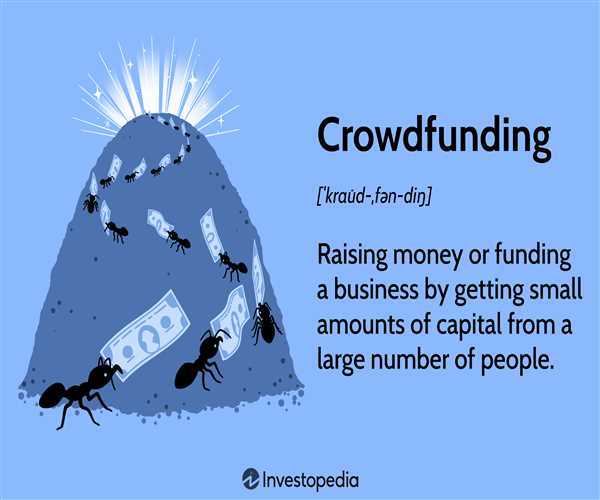Crowdfunding has emerged as a powerful tool in recent years, revolutionizing the way individuals, entrepreneurs, and organizations raise funds for a wide range of projects and initiatives. It has gained immense popularity due to its ability to democratize finance, provide access to capital, and foster innovation. The importance of crowdfunding can be understood from several perspectives:

Access to Capital: One of the primary benefits of crowdfunding is that it allows individuals and organizations to access capital without relying solely on traditional funding sources such as banks or venture capitalists. It provides a platform for anyone with a compelling idea or project to pitch it directly to a large number of potential funders, who can contribute varying amounts according to their preferences and capabilities. This widens the pool of available capital and enables projects that may have been overlooked or deemed too risky by traditional financiers.
Democratization of Finance: Crowdfunding democratizes finance by decentralizing the funding process. It empowers individuals and communities to collectively participate in supporting projects and causes that resonate with them. This shifts the power dynamics from a few decision-makers controlling funding to a more inclusive model where anyone can become a stakeholder in projects they believe in. Crowdfunding provides an avenue for small contributions from a large number of people, allowing individuals from diverse backgrounds to have a say in what gets funded and creating a more equitable financial ecosystem.
Validation and Market Feedback: Crowdfunding platforms serve as a validation mechanism for ideas and projects. They offer an opportunity for entrepreneurs and innovators to test the market demand for their products or services. By presenting their ideas to a wide audience and receiving financial support, they can gauge the market's response and make informed decisions regarding product development, pricing, and marketing strategies. Successful crowdfunding campaigns provide valuable market feedback, indicating that there is a demand for the product or service being offered.
Community Building and Engagement: Crowdfunding fosters community engagement and builds a sense of belonging among project supporters. When individuals contribute to a crowdfunding campaign, they become emotionally invested in the project's success. This creates a community of supporters who can provide feedback, spread the word, and offer further assistance beyond financial contributions. Crowdfunding campaigns often leverage social media and online platforms to engage with their backers, allowing for ongoing communication, updates, and a sense of shared ownership.
Niche and Alternative Projects: Crowdfunding has opened doors for niche and alternative projects that may not fit into the traditional funding criteria. It has enabled artists, social entrepreneurs, and creators to find support for projects that promote social impact, cultural initiatives, or creative endeavours that may not have a wide commercial appeal. By tapping into passionate communities, crowdfunding allows unique and unconventional projects to come to life and contribute to the diversity and richness of the cultural and entrepreneurial landscape.
Early-Stage Innovation: Crowdfunding serves as a critical source of funding for early-stage innovation and startups. It enables entrepreneurs to bring their ideas to life and validate their concepts before seeking larger investments. Successful crowdfunding campaigns can help attract further investment from venture capitalists or angel investors who see the potential and market validation of the project. This reduces the risk for traditional investors and provides a pathway for innovative ideas to reach the market.